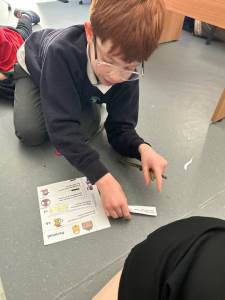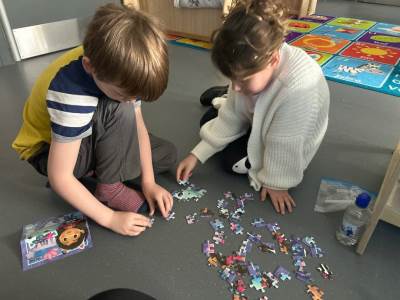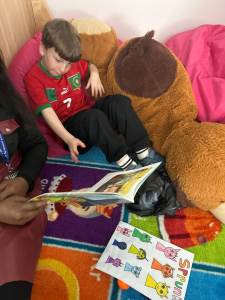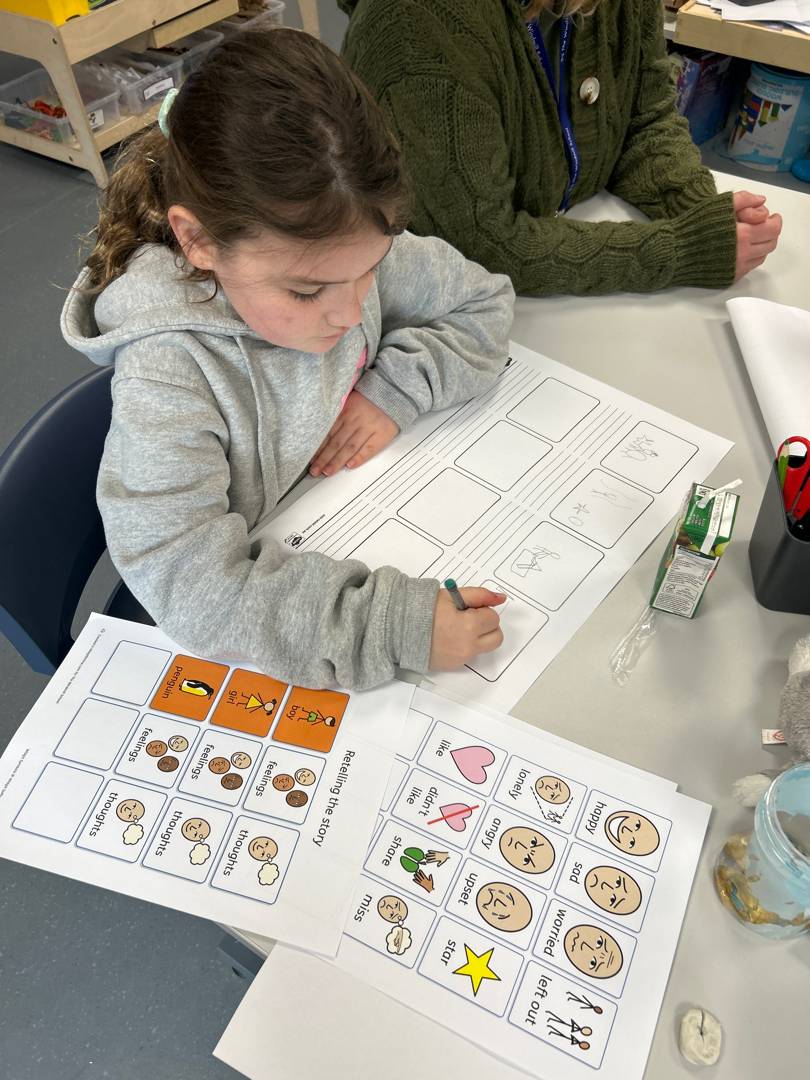Primary English
We use the National curriculum as the foundation of our Primary English curriculum but thoughtfully adapt it to meet the individual needs of our pupils. It is underpinned by the SCERTS framework, supporting our strong focus on social communication and emotional regulation across all areas of learning. We recognise that communication and literacy can look different for every child, so we offer a flexible approach that allows all pupils to access and enjoy English in a way that is meaningful to them.

We place a strong emphasis on functional communication. We use symbols, adaptive technology, and a range of alternative communication systems to support children in expressing themselves and developing key language skills. We aim to build confidence, connection, and independence.
We also prioritise writing for purpose, recognising that some of our children are reluctant writers. Motivating, practical activities – such as writing shopping lists, cards or signs – help children understand the ‘why’ of writing and support their progress in a way that feels relevant and achievable. Storytelling, drama, sensory stories, and roleplay are embedded into our curriculum to bring language to life and support comprehension, creativity and engagement.
Communication
Developing confident communicators is at the heart of our English curriculum. Communication opportunities are built into the entire school day – not just English lessons – and we use a wide range of tools including visual supports, depending on each child’s needs.
We support communication development in a natural, play-based and relational way. Circle time, turn-taking games, drama and roleplay are used to build social confidence and interaction. Every interaction is seen as a chance to build language and connection.
Reading
We aim to foster a love of books and reading, however children experience them. Our reading curriculum is flexible and child-centred, using approaches tailored to different learning styles. These include structured reading schemes, shared reading, sensory stories, focus on non-fiction, storytelling with props, and topic-linked texts. Pupils also access books through the school library and themed reading activities.

Phonics is taught at a pace that suits each child. Where traditional phonics approaches are not appropriate, we focus on whole-word reading, symbol support, and comprehension of simple texts. Story-based play, roleplay and drama help children make personal connections to stories and build important narrative and comprehension skills.
Writing
We support all pupils to develop the ability to record their thoughts in ways that are meaningful to them. For many pupils this might include using symbols to support, learning to touch type, or writing short sentences. Writing activities are designed to be purposeful and engaging – for example, writing a birthday card, writing a fan letter, labelling a picture, or sending a postcard after a class trip.

Writing is often linked to real-life experiences and cross-curricular learning. After acting out a story in drama, pupils might sequence pictures to retell it, write key words using symbols, or describe a character. Sessions are highly differentiated and supported with visual aids, word banks, and plenty of encouragement to help every child succeed and feel proud of their progress.

